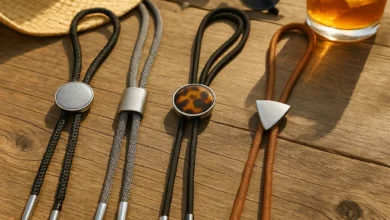
Choosing a dissertation advisor is essential for achieving academic success. This selection can significantly affect your study progress and success. A good adviser guides, mentors, supports, and occasionally collaborates. Choosing carefully is crucial for many factors, from skill to personality. This post will help you select a dissertation adviser who matches your aims and style using key criteria and practical advice.
Understand Your Research Interests
Define your research goals before choosing an advisor. Your advisor’s knowledge depends on your dissertation subject. Advisors with research in your field can provide insights, resources, and connections. Explore faculty biographies, publications, and active projects to learn about advisors’ specializations. Remember, an adviser knowledgeable in your field may help you with research direction, technique, and literature evaluation, making your dissertation process easier and more fulfilling.
Evaluate the Advisor’s Expertise and Track Record
Academic experience and background are crucial for advisors. Check their publications, student successes, and field activities. An adviser who has mentored successful dissertations can help you overcome obstacles. Their knowledge guarantees they comprehend current research trends and methodology for rapid, quality input. A well-connected adviser may also lead to conferences, collaborations, and publishing that increase your academic reputation.
Consider Availability and Communication Style
- Decide whether you prefer frequent check-ins or working independently.
- Some advisors prefer frequent meetings, while others encourage independent work.
- Availability and communication style are critical factors when choosing a dissertation advisor.
- Speak with current or former students to learn about the advisor’s attentiveness and support.
- Effective communication builds trust and motivation during the demanding dissertation process.
Assess Personality Compatibility
A strong dissertation experience requires a solid adviser connection. Think about patience, openness, and listening. An adviser who values your views and promotes intellectual progress might help your collaboration. Compatibility might affect your mental health and research results, as you’ll be working with this person for months or years. Have casual talks to see whether your personalities match.
Seek Recommendations and Feedback
Talking to classmates, instructors, and previous students can be insightful. Mentorship style, dependability, and approachability are typically shown in recommendations. Attend departmental seminars or workshops to see how instructors engage with students. Feedback from others helps you avoid mistakes and find advisers who care about their pupils. Diversity of view ensures a well-rounded understanding before deciding.
Clarify Expectations Early On
After shortlisting advisers, set expectations early. Discussion topics include meeting frequency, feedback turnaround, research milestones, and publishing goals. Establishing mutual understanding eliminates misunderstandings and aligns both sides throughout the dissertation. Clear expectations improve time management and motivation. Openness, respect, and a shared commitment to academic advancement make a strong advisor relationship. Taking the time to find a dissertation helper who shares your vision ensures smoother collaboration and greater success in your research journey.
Consider the Advisor’s Network and Resources
Your dissertation experience might benefit from an advisor’s professional network and resources. Advisors in academic communities, corporate partners, or research institutions can help you collaborate, fund, and disseminate. Advisors with access to specialist equipment, archives, or databases can help with research. When choosing an adviser, consider how their network matches your aims and might offer opportunities for your academic and professional future.
Reflect on Long-Term Career Support
Your dissertation adviser typically influences your academic and professional career after graduation. They can suggest you for employment or fellowships, provide references, and mentor you. Consider how much the advisor cares about your future. Mentors who promote career advancement, confidence, and professional development are vital. Choosing a future-focused adviser offers assistance beyond your dissertation defense.
Trust Your Instincts
- Feelings about working with an advisor matter.
- Take any unpleasant feelings or discomfort seriously.
- Balance objective criteria with personal comfort to make the best choice.
- Positive signs include passion, respect, and genuine curiosity from the advisor.
- Practical factors are important, but intuition also plays a role in choosing an advisor.
- A supportive, creative, and resilient advisor relationship can be found by trusting your gut.
Make an Informed Decision
Consider your options after much study, talks, and thinking. You should weigh knowledge, availability, personality, assistance, and network against your academic goals and preferences. No adviser is perfect, but the proper one will make your dissertation journey easier and more fun. Once picked, be professional, upfront, and committed. A good adviser can help you succeed academically and mentor you for life.
Conclusion
Choosing the right dissertation advisor is crucial to your research and academic achievement. Finding a mentor who matches your goals and working style requires careful consideration of experience, communication style, personality compatibility, and long-term assistance. A good advisor relationship involves respect, clear expectations, and open communication. Trust your intuition and acquire as much information as possible before choosing. With the appropriate adviser, you can overcome obstacles and enjoy your dissertation.
FAQs
How important is an advisor’s expertise in the dissertation process?
An advisor’s experience guarantees they understand your study topic and can give vital help, comments, and resources throughout your project.
What should I do if my advisor is frequently unavailable?
If your adviser is frequently unavailable, express your concerns and arrange a meeting to discuss the issue. If problems continue, discuss options with your department.
Can personality differences between a student and advisor affect the dissertation?
Personality may affect communication and teamwork. Maintaining a good working relationship with an adviser requires comfort and respect.
How can I find out about an advisor’s mentoring style before committing?
Talking to current or previous students, attending departmental events, or scheduling casual interactions might reveal an advisor’s mentoring style.
Is it okay to switch advisors if the relationship isn’t working?
Switching advisers isn’t ideal, but it’s occasionally required for academic success and well-being. Talk to your department about methods to ease the transition.

